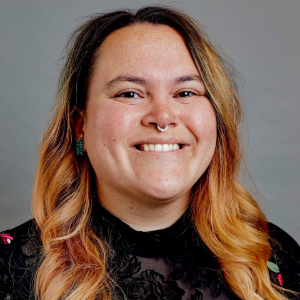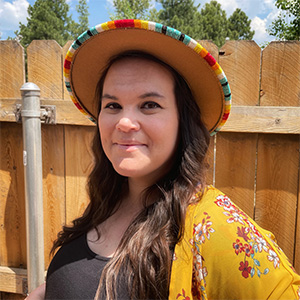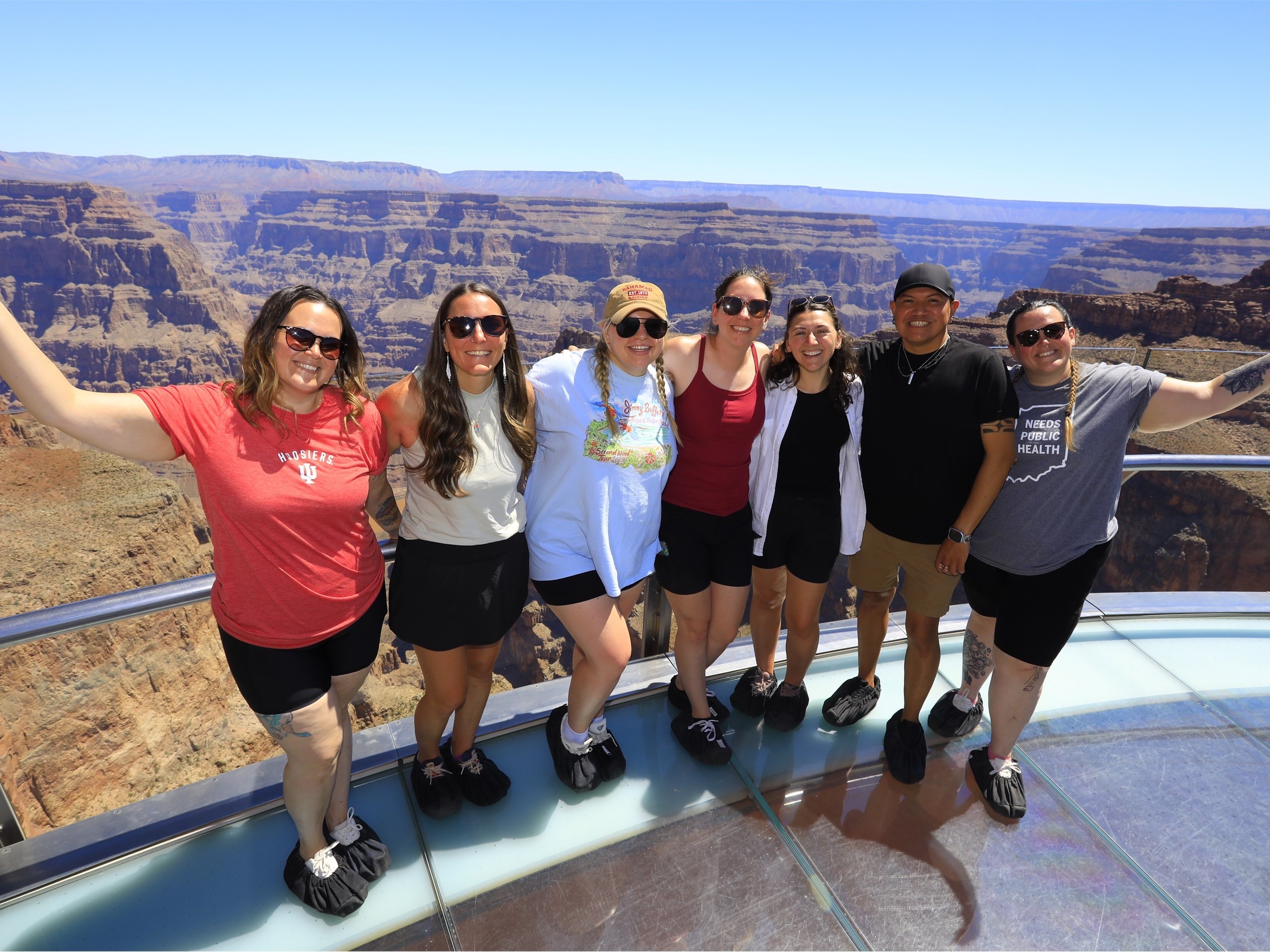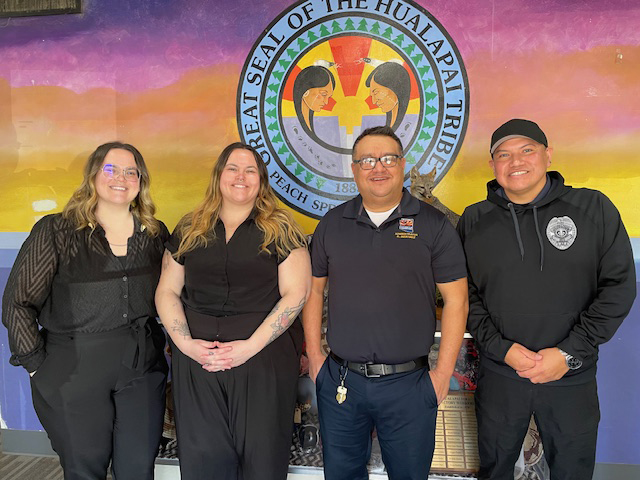Thanks to a $4,000 grant from the IU Futures Program in the College of Arts and Sciences, a team of SPH-B faculty members, students, and staff traveled to the federally recognized Hualapai Tribe in Peach Springs, Arizona at the end of July to conduct research on health equity issues amongst tribal jails on the reservation.
Back in the spring, Applied Health Science (AHS) Assistant Professor Carly Camplain, Ph.D., and her twin sister and Epidemiology and Biostatistics (EBIO) Assistant Professor Ricky Camplain, Ph.D., met with the Hualapai Tribal Council to gain permission to conduct the research project "Integrated Healthcare in Tribal Jails." The aim is to enhance healthcare and program offerings in the Hualapai Adult and Juvenile Detention and Rehabilitations Centers. During this research, the dynamic duo has made top priority the incorporation of unique tribal cultural practices in addressing physical, mental, emotional, and spiritual health needs.

"We also have community partnerships with the tribal cultural center as well as the health and human services department," says Carly Camplain, who last year was honored by the American Public Health Association for early-career excellence in public health law, specializing in Indigenous people, Native Nations, and related correctional facilities. "On this trip, we were able to collect data from staff members who work at the tribal jails and see how unique it is compared to non-tribal jails."
Team member Riley Woodland, a first-year AHS Ph.D. student who has worked in the Health and Justice Lab since the fall of 2023, shares that the trip to the Hualapai tribe taught her the value of the hands-on community experience when it comes to research.
"It was my first time visiting a tribal jail and being on a reservation…before this trip, my work leaned heavily on quantitative methods such as numbers, spreadsheets, patterns, graphs," says Woodland, who is majoring in Behavioral Health. "Once on site at Hualapai, I watched other researchers on our team conduct interviews with grace and empathy. Eventually, I found myself sitting across from participants, asking questions, listening deeply, and realizing how powerful qualitative data can be."
Woodland adds that hearing the stories, lived experiences, and "truths that don’t fit neatly into a graph" gave her a greater appreciation for qualitative data as well as the demands and layers of complexity in policy and procedure at tribal detention facilities. Involvement in the project overall has helped Woodland gain greater understanding of how incarceration in this context impacts health outcomes.
"I found my rhythm in helping keep our schedule tight and our groups moving smoothly so we could all maximize our time," says Woodland. "I was genuinely impressed by what the Hualapai Department of Corrections has accomplished, especially given the limited resources and support tribal jails receive compared to non-tribal jail facilities."
Carly Camplain says while federally recognized tribes and tribal members get about $4,000 per person per year for healthcare expenses from the U.S. government, tribal jails receive no allocation whatsoever, compared to the over $8,500 per person per year the U.S. Bureau of Prisons receives. Additionally, tribal nations cannot tax their population—another lack of revenue to support infrastructure such as health needs in tribal detention facilities.

"Our goal with the trip back in July is to get some data on their needs by talking and working directly with the community, build that trust, and then start building a case on how we can get resources to them," says Ricky Camplain. "For instance, we had some conversations about how those incarcerated could potentially have access to the new recreational space that is open to the general community."
Second-year M.P.H. student Morgan Occhino in EBIO felt right at home as a research team member, having conducted health equity research and evaluation in various capacities in the Southwest for the last decade. Occhino felt privileged to have been received so warmly by the members of the Hualapai Department of Corrections facilities.

"Their commitment to improve the health of their community is inspiring as they are true partners of community-based research," says Occhino. "During our time there we were welcomed into their facilities, shared meals with us, and provided us with a tour of the Grand Canyon. These are experiences I will never forget and could never have imagined when I started working in public health research."
Occhino says her continued involvement with this research project as the team moves forward with processing data collection and obtaining further grant funding is crucial to her professional goals of obtaining a Ph.D. in carceral health.
"I came to IU specifically to work with Dr. Ricky Camplain and now have the joy of also working with Dr. Carly Camplain," says Occhino. "The work they have done to build this partnership with the Hualapai Tribe is both beautiful and significant; I feel so thankful to say I got to collaborate with them on this project where I got to apply my skills but also be trained in new areas!"
For more inspiring stories about SPH-B students, faculty, and staff, visit go.iu.edu/48bx.


